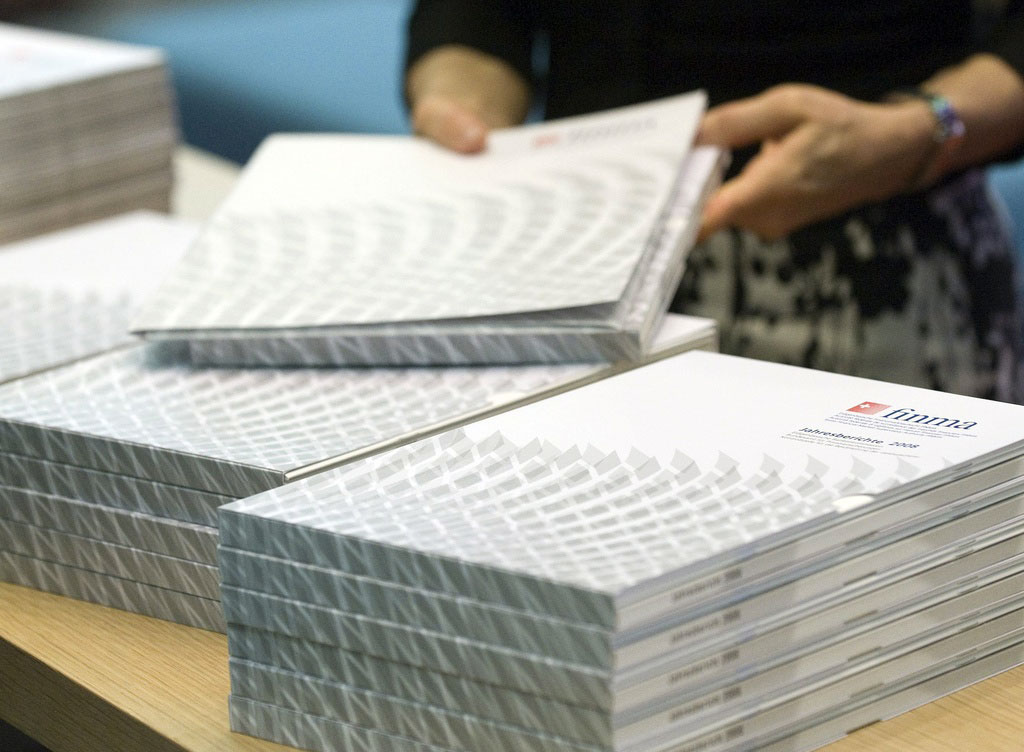Were Swiss outmanoeuvred in tax evasion scrum?

Switzerland should be doing more to fight its corner in the battle for a piece of the shifting but highly lucrative tax evasion market, an expert tells swissinfo.ch.
With the market now worth an estimated $13.7 trillion (SFr13 trillion), Swiss financial journalist Myret Zaki asks in her new book, Banking Secrecy is Dead, Long Live Tax Evasion (Le secret bancaire est mort, vive l’évasion fiscale), who is really benefitting most from tax evasion.
Her conclusion: British jurisdictions, where trusts are thriving. These secretive organisations are, in Zaki’s words, the “princely tools” of tax avoidance.
The non-governmental organisation Tax Justice Network valued the tax evasion market at $11.5 trillion in 2005, and at its current worth it comes in just under the United States’ Gross Domestic Product.
Activity in the Swiss financial centre is marginal by comparison. In 2008 it managed around SFr2.2 trillion in cross-border private assets, around half of which would have been undeclared.
Zaki argues that Switzerland should resist moralistic anti-banking secrecy arguments put forward by neighbouring countries and demand equal treatment. It should not give up too much, too quickly in the face of international pressure, she says.
swissinfo.ch: In your book you ask people to view recent events in terms of economic warfare …
Myret Zaki: Take the United States. The Obama administration and Democrats like Senator Levin noted that there have been notable abuses, for example in the Cayman Islands and other Caribbean islands, but they only focused on Switzerland. No American bank has been as beleaguered as UBS, of which they wanted to make an example.
When Americans act, they only do so in relation to the financial industries of other countries and they do not target, for example, bankers in Florida who are sheltering a great deal of money, particularly Mexican. UBS only managed about one per cent of American tax evasion [funds]. But what’s been done about the remaining 99 per cent? Nothing.
swissinfo.ch: And what was London’s role?
M.Z.: Historically, the London and Swiss financial centres have been rivals, but it was fair game to try to compete with each other. Although active in the same market – the management of cross-border capital – they had different methods.
But the British have worked hard within the European Union and Organisation for Economic Co-operation and Development (OECD) countries to ensure that Switzerland aligns its taxation policy and ceases to operate a competitive taxation [policy] that is damaging to them.
In turn, they have jealously guarded their Eurobond market. They have also always ensured the competitiveness of the Channel Islands with regard to trusts and foundations, by permitting non-transparent practices to always be possible for these bodies: the island of Jersey for example has never shared information about a trust.
swissinfo.ch: Can we therefore assume that the attacks against Swiss bank secrecy are the result of a concerted strategy on the part of the British?
M.Z.: Let’s say rather that the end of banking secrecy was provoked abruptly and precipitated for reasons that are largely economic and commercial. There was a vested interest for Switzerland’s major financial rivals – namely Britain and its jurisdictions as well as the United States and the Caribbean – and European countries wanting to recover their revenue.
swissinfo.ch: The G20, the OECD and even the EU have used moral arguments to attack Switzerland. Why do they remain silent on the issue of trusts?
M.Z.: The only explanation is that the OECD itself draws up ‘greylists’ and ‘blacklists’, decides on its own who are the good and bad pupils and determines who is transparent and who isn’t. But it is largely controlled by the British and the Americans. Its decisions are based on the political clout of its members, and the major financial centres are also strong states, that can consequently protect themselves.
swissinfo.ch: Your book says Switzerland is a victim of unequal treatment. But can the country stand this up?
M.Z.: It is certainly very difficult for it to argue its position. But it gave up too quickly in the UBS case and reacted too submissively towards the OECD. The agreements that were renegotiated are in line with the wishes of the OECD, while its tax evasion practices are now marginal at the global level.
swissinfo.ch: You also write that Switzerland was an ‘easy prey’. What mistakes did the Swiss financial centre make?
M.Z.: It was perhaps in thinking for too long that bank secrecy could survive in the current environment. Today, privacy is very expensive. It is no longer possible, in practice, to get it without paying a very high price. But banking secrecy is ultimately just a territorial law and is therefore vulnerable. It was easy to do damage through media criticism alone.
Switzerland has been under continuous attack over the past year for helping foreign tax evaders hide their assets. The global crusade coincided with the devastation of the financial crisis, which left large holes in the budgets of many countries.
The OECD placed Switzerland on a “grey list” of uncooperative tax havens in April last year. The Swiss were removed in September after renegotiating more than a dozen double taxation treaties, but they have refused to automatically transfer information to tax investigators without proof of crimes.
Several countries, including Italy, France, Britain and the US, launched tax amnesties last year in an effort to repatriate assets from tax cheats. These are forecast to damage the Swiss offshore banking industry.
Switzerland was particularly annoyed at the aggressive Italian amnesty that saw surveillance and tailing of cross border suspects entering Switzerland. The Swiss suspended talks on the new double taxation treaty in protest.
The most damaging tax evasion case involved the activities of UBS bank in the US. A year ago, UBS was fined $780 million after admitting helping US citizens to dodge taxes. It also handed over data of 285 account holders.
In September, the Swiss government agreed to transfer the details of 4,450 UBS clients to the US – in effect violating Swiss banking secrecy to prevent a ruinous court case for UBS.
Also last year a former employee of HSBC private bank in Geneva ran away with sensitive client data that he handed over to the French authorities.
And in January an unnamed informant offered to sell the German authorities the data of about 1,500 possible tax evaders with bank accounts in Switzerland.
Myret Zaki was a financial analyst for the Lombard Odier bank in Geneva before becoming a financial journalist for Le Temps newspaper. She now works for the Bilan business magazine as associate editor.
Her first book, Inside UBS:The Truth About the Sub Prime Scandal (UBS – Les dessous d’un scandale), was a top-ten best-seller in French-speaking Switzerland.
Her second book is entitled Banking Secrecy is Dead, Long Live Tax Evasion (Le secret bancaire est mort, vive l’évasion fiscale).

In compliance with the JTI standards
More: SWI swissinfo.ch certified by the Journalism Trust Initiative



You can find an overview of ongoing debates with our journalists here. Please join us!
If you want to start a conversation about a topic raised in this article or want to report factual errors, email us at english@swissinfo.ch.